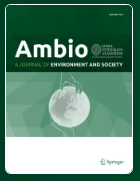Attitudinal differences toward wildlife have important implications for conflict management and when the species in question have strong cultural and religious associations, conflict mitigation becomes a challenging endeavor. We investigated farmers’ attitudes toward two different crop-raiding macaque species, the rhesus macaque in northern India, and the bonnet macaque in southern India. Apart from regional differences in attitudes, we also assessed temporal changes in attitude toward the rhesus macaque. We carried out household surveys using a semistructured questionnaire to collect data. Our findings reveal that respondents in southern and northern India differ significantly in their views regarding species sanctity and preference for mitigation options. Although people’s perceptions of the rhesus macaques had changed over time in northern India, farmers were still unwilling to cause harm to the macaques. We discuss the underlying causes of these observed differences in attitude and their impact on the management of human–macaque conflict.

